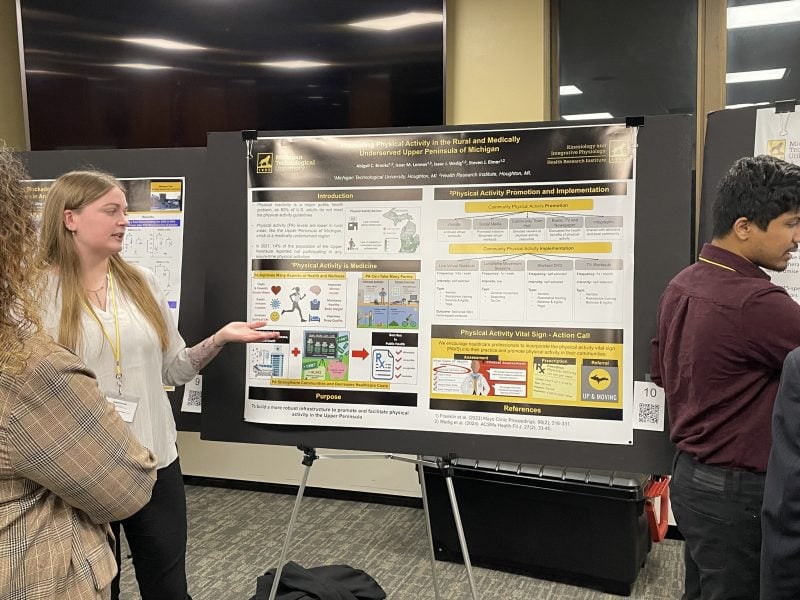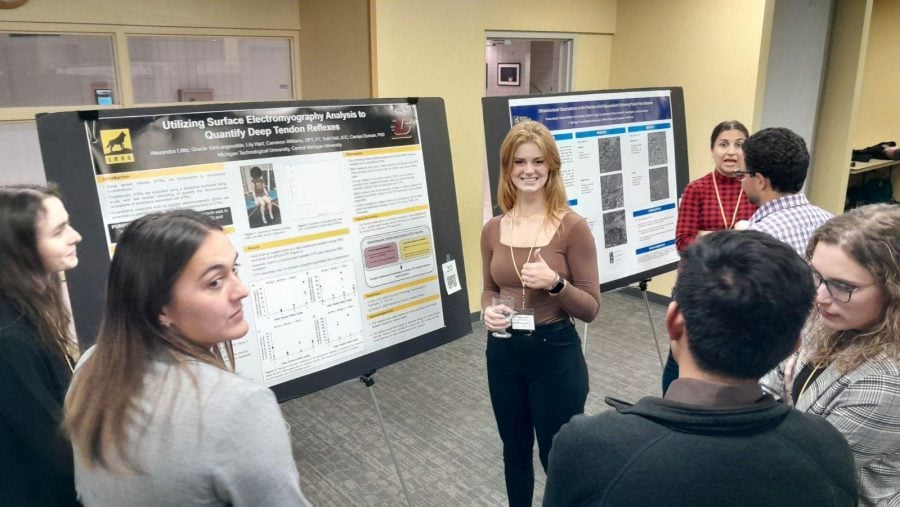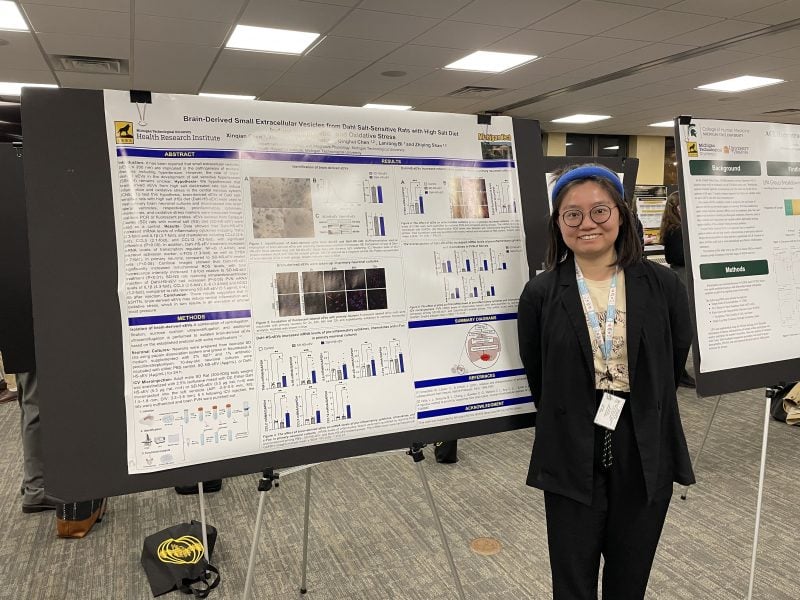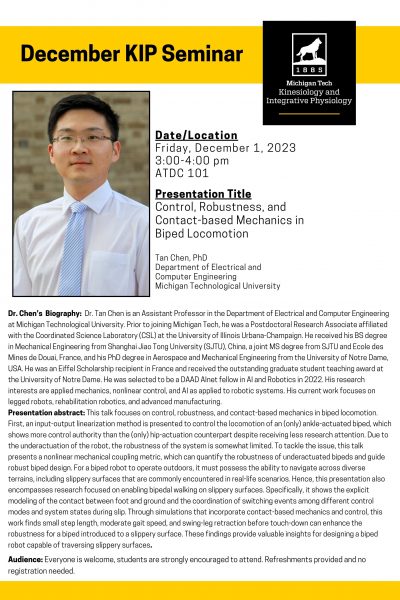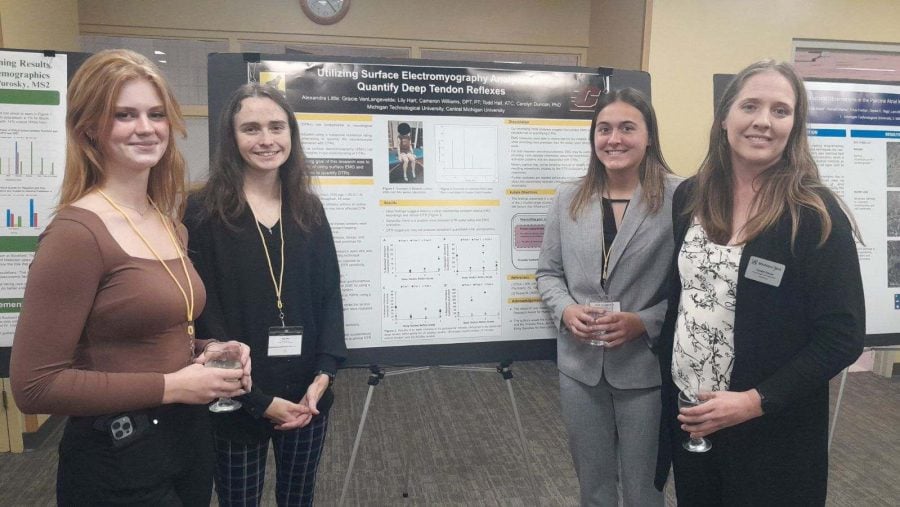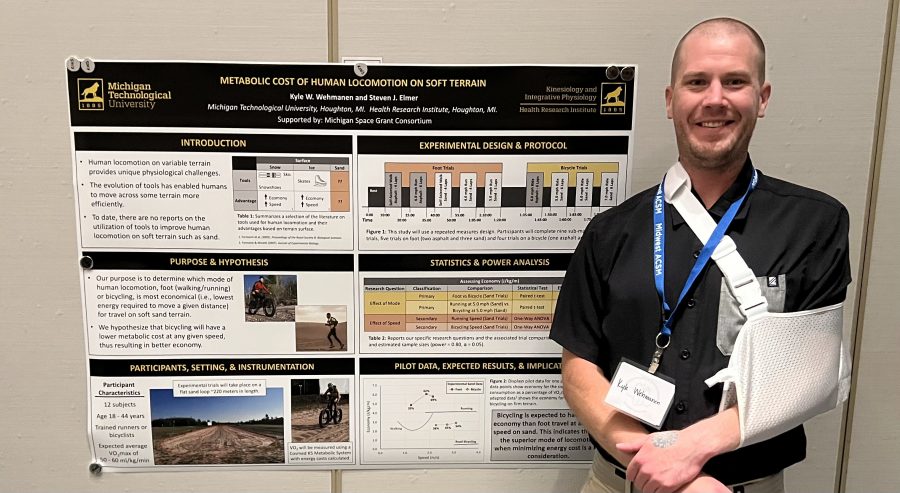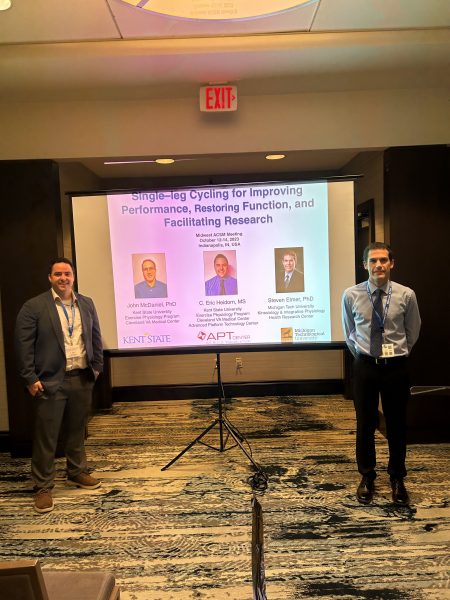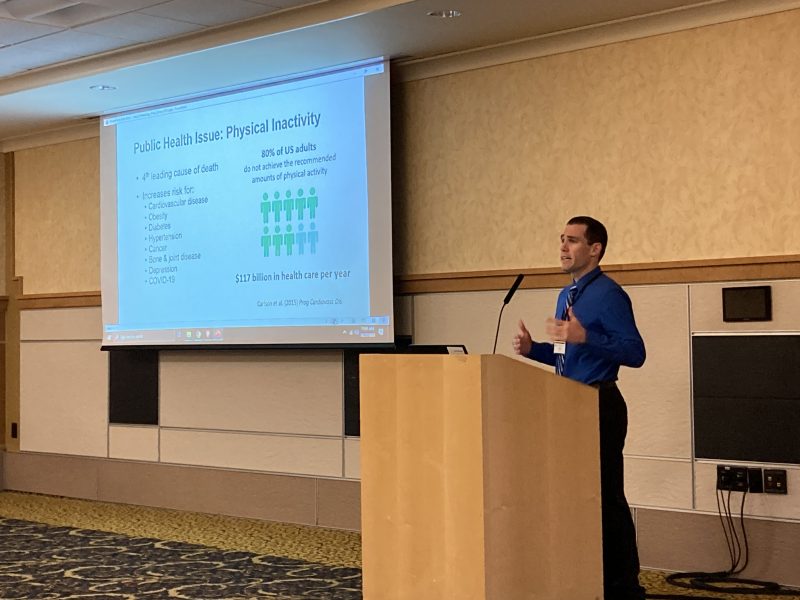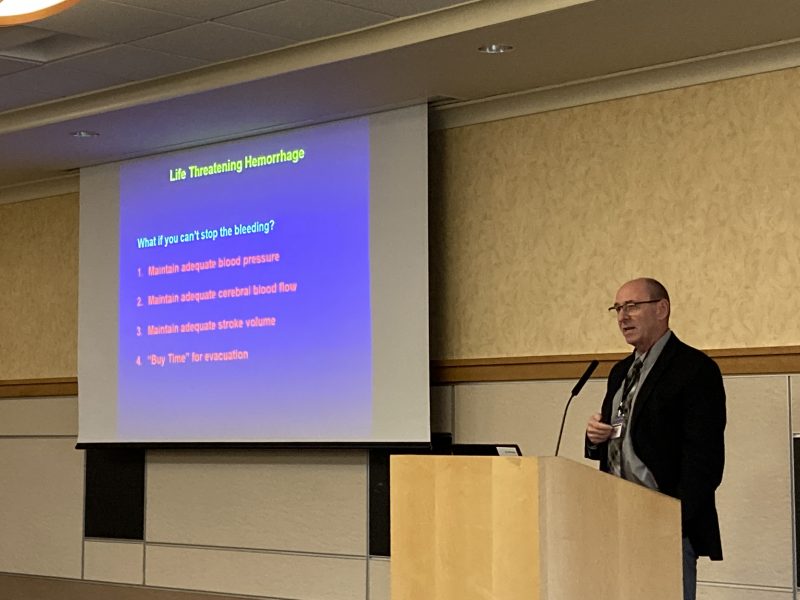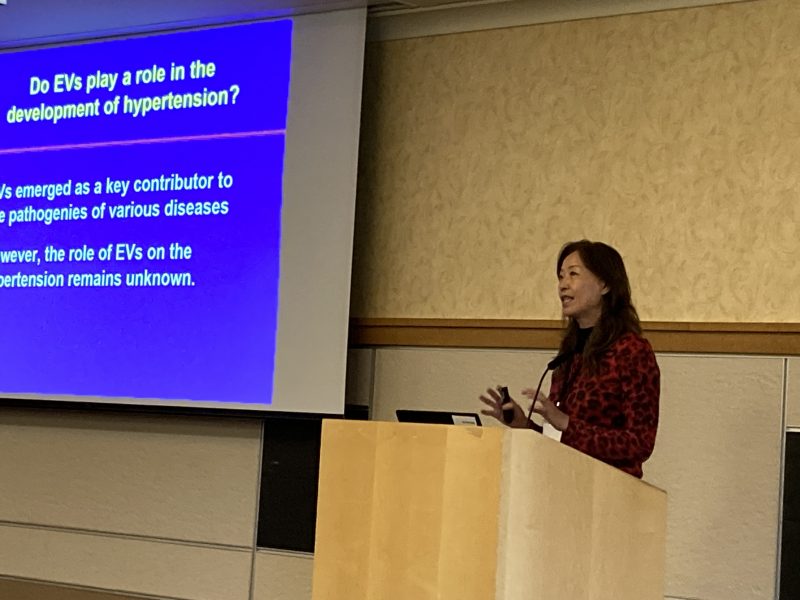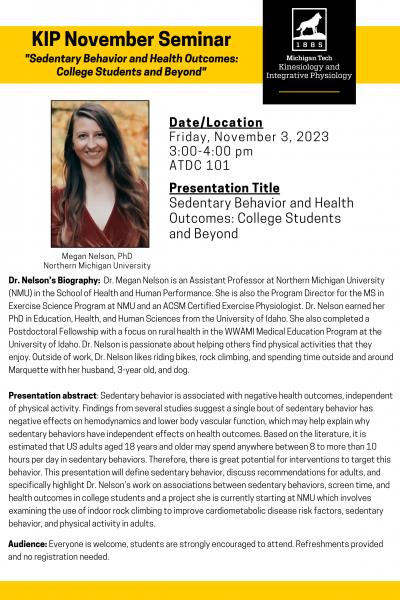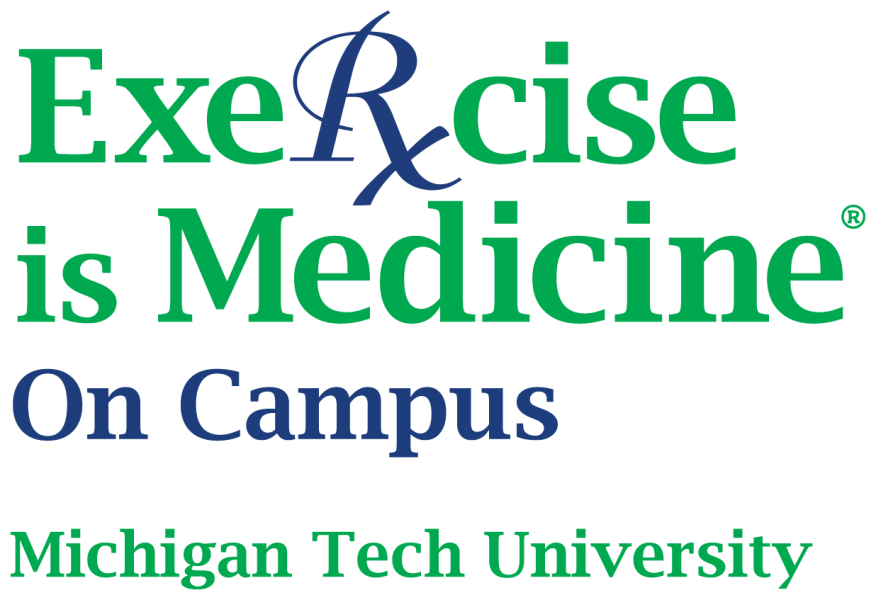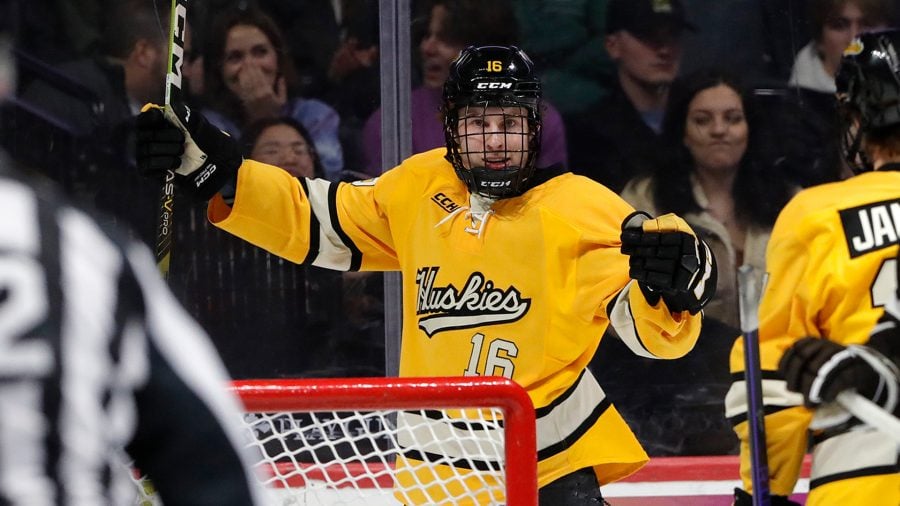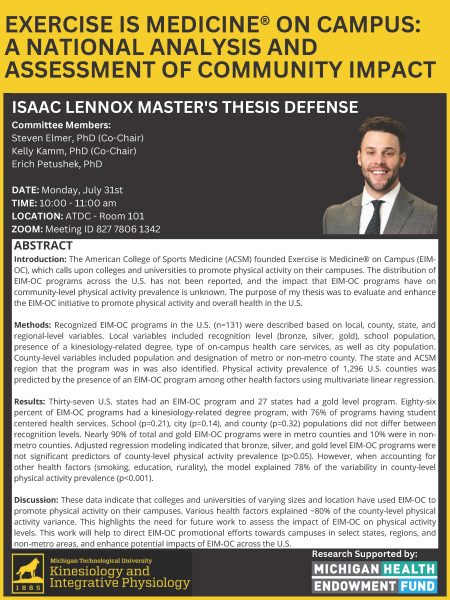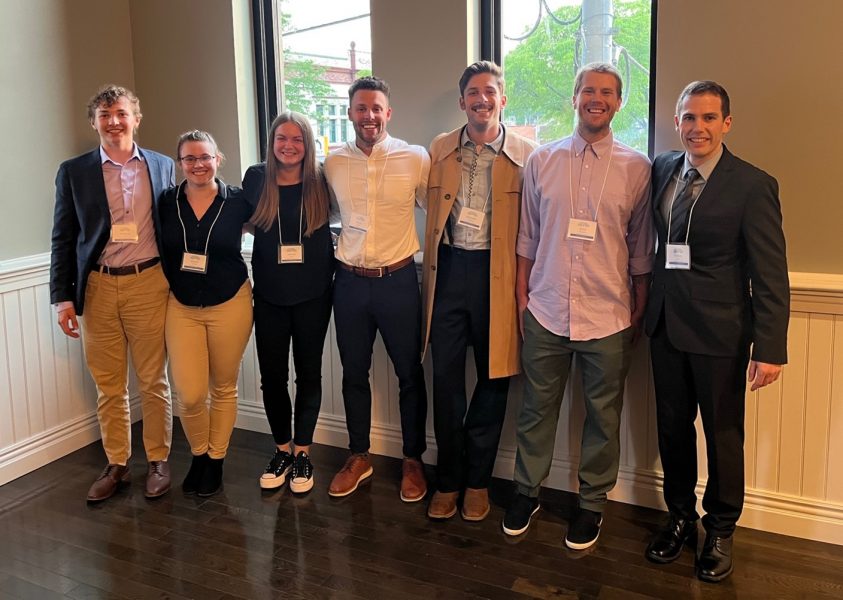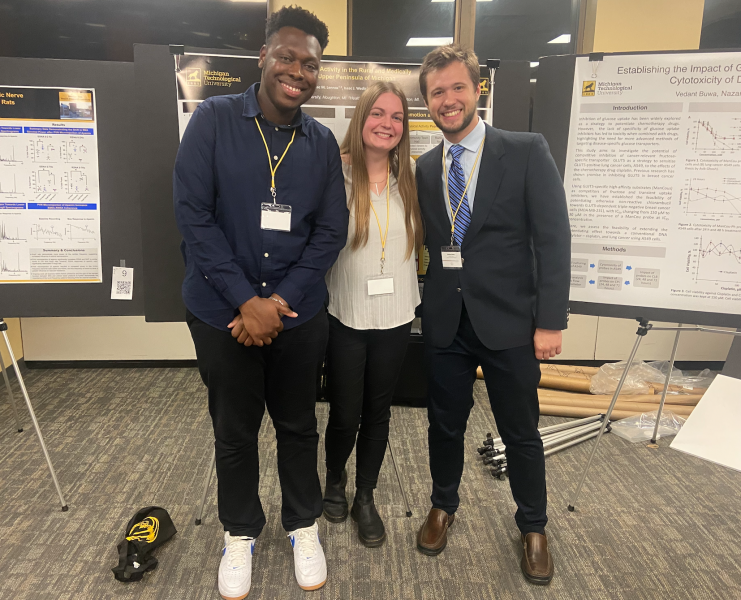
The 2023 Upper Peninsula Medical Conference was held on the MTU’s campus on October 28, 2023. Several KIP students attended to learn more about their field of study and network with health care professionals.
Abby Brooks is a first-year master’s student in Kinesiology. She is part of the Exercise Physiology Lab and advised by Dr. Steve Elmer. Something she found really interesting about the conference was the talk that involved red light and blue light. She had heard about blue light before and how it affects how you sleep, but she didn’t know how bad the effects actually were, and it made her think about how she should put her phone down earlier. She didn’t know the ideas presented about red light and its benefits. She also presented a poster on her research, titled “Promoting Physical Activity in the Rural and Medically Underserved Upper Peninsula.”
Lily Hart is a thesis-based master’s student in Kinesiology and a member of Dr. Carolyn Duncan’s Biomechanics Lab. Something she found interesting about the conference was the variety of professions that can be a part of the medical field other than being a physician. Also, it was her first time being a part of a conference and presenting, and she felt very grateful to be able to be there with the lab team.
Gracie VanLangevelde is pursuing an accelerated master’s degree in Kinesiology. She works in Dr. Duncan’s lab and focuses on deep tendon reflexes. Something she learned was that the ticks in the Upper Peninsula carry diseases other than Lyme disease. People can collect the ticks they find and submit them to the local lab for testing. The title of her poster presentation was “Utilizing Surface Electromyography and Kinematic Analyses to Quantify Deep Tendon Reflexes.” Gracie said, “I hope to contribute to this ongoing study to help other researchers with their work.”
Xinqian (Sherry) Chen has been studying for four years under Dr. Zhiying (Jenny) Shan to earn her PhD in Integrative Physiology. Something she learned from the conference was new mechanism of diabetes is focusing on the loss of beta cell identity (dedifferentiation or trans-differentiation) instead of the loss of beta cell numbers. Her poster presentation was titled “Brain-derived Small Extracellular Vesicles from Dahl Salt Sensitive Rats with High Salt Diet Induce Inflammation and Oxidative Stress.”
Nathan Balok is a first-year master’s student in Kinesiology. He is currently working in the Exercise Physiology Lab with Dr. Elmer. When he attended the UP Medical Conference, he found Dr. Jed Magen’s presentation about major depressive disorder in primary care settings particularly interesting. Since he hopes to enter the medical field as a physician, it will be crucial for him to be mindful of his patients’ health from a holistic point of view, including their mental health. Recognizing the signs and symptoms of major depressive disorder and taking the steps to treat it will help him be a better advocate for patients’ health in the future.
